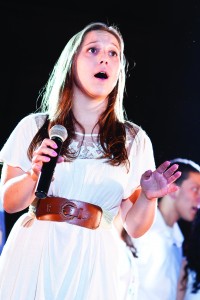Jackson McCarron
Contributing Writer
Parents of a University student are facing misdemeanor charges for supplying and consuming alcohol with underage students in February.
The story was first published on the front page of the Sunday edition of The Daily Item, a local paper serving Lewisburg and the surrounding area.
According to a police affidavit, Michael R. Ruff and his wife, Victoria B. Ruff, purchased and consumed hard alcohol with their daughter and her friends on Feb. 2 at a party thrown in their daughter’s dorm room.
The situation was brought to the attention of a University employee, who wished to remain anonymous, when a Residential Advisor (RA) sent an email expressing concern about the safety of the students living on her hall.
In the email, which was reported in a criminal complaint filed by police at the Union County Magistrate’s office, the RA stated that according to the residents she spoke with, the Ruffs had purchased between seven and nine handles of alcohol.
The RA expressed her surprise at seeing Michael Ruff on the hall that night when students were drinking. She stated in the email that one of her residents witnessed him pressuring underage students to drink. According to the email, Ruff commented on one female student’s belly-shirt, saying that it made her look “more like a slut.”
The email sent to the University employee ended with the RA’s assertion that the Ruffs exhibited a shocking lack of concern for the underage residents’ safety, and she feared a similar situation might occur if the Ruff’s were to return for House Party Weekend.
Several photos uploaded to Victoria Ruff’s Facebook page, cited as evidence in court documents, place the Ruffs in a downhill residential hall and in the presence of opened handles of alcohol with minors present.
Victoria Ruff commented on one such photo of herself, her daughter and 14 other girls, which has since been removed, saying, “ … It was fun reliving my college dorm days with my girls.”
Another photo, included as evidence in court documents, depicting Victoria Ruff and six of her daughter’s friends, was captioned, “Reliving my college days with my daughter and her friends at Bucknell! Lucky to be included in the ‘pre-gaming.’ Maybe next time I’ll make it to the frat party.”
One of the underage female students present at the party was later admitted to the hospital, according to the police affidavit. The student told police in an interview conducted on Feb. 5 that Michael Ruff was pouring shots for other women in his daughter’s room and poured at least one of her shots that evening. The student recalled that she took eight or nine shots total that night.
Between Feb. 5 and 6, police conducted a series of interviews with four female students involved in the incident, including the Ruff’s daughter. All of the women placed the Ruffs in their daughter’s room on the night of Feb. 2.
All of the women recall the Ruffs being present in their daughter’s room sometime between 9 p.m. and 10 p.m. on the night of Feb. 2, and all of the women were aware that the liquor and wine in the dorm room had been supplied by Michael and Victoria Ruff.
Richard C. Roxin, the lawyer for Lisa’s Liquor Barn near the Ruff’s New York home, sent Detective Jeff Ettinger a receipt from the store that showed seven purchases of alcoholic beverages. The MasterCard used to purchase the beverages was the same one Michael Ruff used to pay for his and his wife’s room at the Country Inn and Suites, the police reported.
